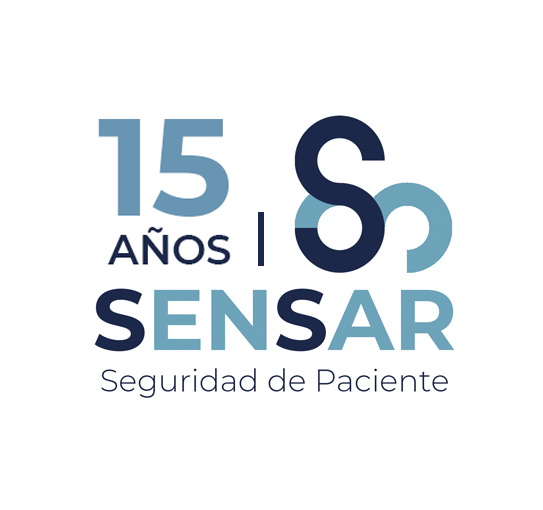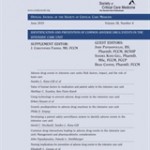Eventos Adversos farmacológicos en Pacientes Críticos. Monografía
En el último suplemento de Critical Care Medicine se publican varios artículos dirigidos a las complicaciones farmacológicas más comunes en las áreas de críticos, motivo por el cual os lo recomiendo. Más abajo tenéis el índice de artículos.
Identification and Prevention of Common AdverseDrug Events in the Intensive Care.
SuplementJune 2010. Vol 38 (6)
La situación clínica de los pacientes críticos suele conllevar una acción terapéutica muy compleja. Esto, junto a la necesidad de tomar decisiones rápidas, y el hecho de que en ocasiones el paciente no pueda comunicarse, puede favorecer la aparición de efectos secundarios, reacciones alérgicas e interacciones farmacológicas con consecuencias muy importantes para el pronóstico de nuestros pacientes.
El conocimiento de dichas complicaciones así como la aplicación de la tecnología y sistemas de vigilancia de seguridad deben ser cuidadosamente sistematizados. De esta forma la prevención puede ser más eficaz, debiendo recaer la responsabilidad de forma colectiva, en la organización institucional.
Se debe conseguir una participación multidisciplinar, trabajando juntos farmacólogos, microbiólogos, alergólogos, especialistas en críticos, enfermería , etc, para hacer que el uso de la medicación sea un proceso seguro y eficaz.
Índice deArtículos:
Adverse drug events in intensive care units: Risk factors, impact, and the role of team care
Kane-Gill, Sandra L.; Jacobi, Judith; Rothschild, Jeffrey M.
Value of human factors to medication and patient safety in the intensive care unit
Scanlon, Matthew C.; Karsh, Ben-Tzion
Using technology to prevent adverse drug events in the intensive care unit
Hassan, Erkan; Badawi, Omar; Weber, Robert J.; Cohen, Henry
Developing a patient safety surveillance system to identify adverse events in the intensive care unit
Stockwell, David C.; Kane-Gill, Sandra L.
Common drug interactions leading to adverse drug events in the intensive care unit: Management and pharmacokinetic considerations
Papadopoulos, John; Smithburger, Pamela L.
Nursing implications for prevention of adverse drug events in the intensive care unit
George, Elisabeth L.; Henneman, Elizabeth A.; Tasota, Frederick J.
Drug-induced thrombocytopenia in critically ill patients
Priziola, Jennifer L.; Smythe, Maureen A.; Dager, William E.
Antimicrobial resistance: Consideration as an adverse drug event
Martin, Steven J.; Micek, Scott T.; Wood, G. Christopher
Allergic and hypersensitivity reactions in the intensive care unit
Kanji, Salmaan; Chant, Clarence
Drug-induced acute kidney injury in the critically ill adult: Recognition and prevention strategies
Bentley, Michael L.; Corwin, Howard L.; Dasta, Joseph
Drug-induced acute liver failure and gastrointestinal complications
Lat, Ishaq; Foster, David R.; Erstad, Brian
Drug-induced arrhythmias
Barnes, Brian J.; Hollands, James M.
Adverse drug events associated with disorders of coagulation
Barletta, Jeffrey F.; Cooper, Brad; Ohlinger, Martin J.
Drug-induced endocrine disorders in the intensive care unit
Thomas, Zachariah; Bandali, Farooq; McCowen, Karen; Malhotra, Atul
Adverse drug events associated with the use of analgesics, sedatives, and antipsychotics in the intensive care unit
Devlin, John W.; Mallow-Corbett, Stephanie; Riker, Richard R.
Adverse drug reactions resulting in hyperthermia in the intensive care unit
McAllen, Karen J.; Schwartz, David R.
Electrolyte disturbances associated with commonly prescribed medications in the intensive care unit
Buckley, Mitchell S.; LeBlanc, Jaclyn M.; Cawley, Michael J.





